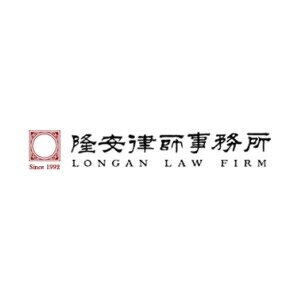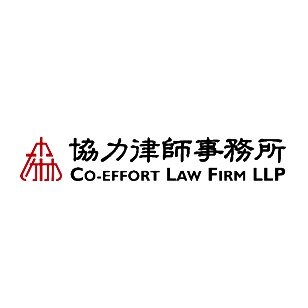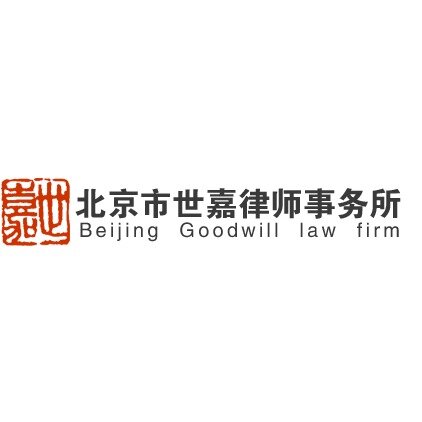Best Energy Regulatory Law Lawyers in Beijing
Share your needs with us, get contacted by law firms.
Free. Takes 2 min.
List of the best lawyers in Beijing, China
About Energy Regulatory Law in Beijing, China
Energy Regulatory Law in Beijing, China, is a complex field that governs the generation, transmission, distribution, and consumption of energy, as well as environmental concerns, pricing, and market competition. This field blends national and local regulations to ensure the orderly development of energy resources, the stability of supply and demand, the promotion of renewable sources, and the protection of public interests. Beijing, as the capital city and political center, often implements pioneering policies and pilot programs, making local regulatory compliance critical for businesses and individuals active in the energy sector.
Why You May Need a Lawyer
A lawyer experienced in Energy Regulatory Law can help you navigate intricate legal requirements and resolve potential disputes. Common situations where legal assistance is beneficial include:
- Obtaining permits and approvals for new energy projects or expansions
- Ensuring compliance with safety, environmental, and emission standards
- Handling administrative hearings, investigations, or enforcement actions by regulators
- Negotiating and drafting power purchase agreements or grid connection contracts
- Addressing land use or zoning issues related to energy infrastructure
- Participating in renewable energy or carbon trading schemes
- Resolving disputes over pricing, tariffs, or service interruptions
- Managing intellectual property matters involving new energy technologies
- Advising on foreign investment regulations and cross-border transactions in the energy sector
Local Laws Overview
Beijing's energy regulatory environment is shaped by both national laws and local policies designed to promote efficient, low-carbon, and secure energy systems. Key aspects include:
- Renewable Energy Promotion: Beijing strongly encourages solar, wind, and other clean energy development under both central and city-level initiatives.
- Energy Conservation and Emissions Reduction: Strict standards limit pollution and require the adoption of cleaner technologies, with enforcement overseen by local bureaus.
- Grid Access Rules: The process for connecting to the city's electricity grids is regulated, often involving state-owned enterprises and adherence to technical codes.
- Electricity Tariffs and Pricing: Pricing for energy supply is often set or approved by government authorities, particularly for residential and industrial use, making legal guidance essential for negotiations.
- Market Access and Licensing: Entities entering generation, distribution, or sale of energy must obtain appropriate licenses from the Beijing Municipal Commission of Development and Reform and related agencies.
- Dispute Resolution Mechanisms: Disputes related to energy are resolved through administrative, arbitration, or court procedures, depending on the nature of the conflict.
Frequently Asked Questions
What is Energy Regulatory Law in Beijing?
Energy Regulatory Law in Beijing refers to the rules and policies that govern how energy is produced, transmitted, distributed, and consumed, ensuring compliance with safety, environmental, and economic standards.
Who are the main regulators of energy in Beijing?
Energy regulation in Beijing is led by several bodies, including the Beijing Municipal Commission of Development and Reform, the State Grid Beijing Electric Power Company, and environmental protection bureaus.
What permits are required for starting a renewable energy project?
Developers need multiple permits, such as project approval from government agencies, environmental impact assessments, grid connection agreements, and construction licenses.
Is foreign investment allowed in Beijing's energy sector?
Yes, but it is subject to specific national and local regulations. Some areas are open to foreign participation, particularly renewables, while others remain restricted or require joint ventures.
How is electricity pricing determined in Beijing?
Electricity prices are mainly set or approved by the government to ensure public interest and market stability, especially for essential services and major industries.
What are the penalties for non-compliance with energy regulations?
Penalties can include fines, suspension of operations, revocation of licenses, and, in severe cases, criminal liability, especially for safety or environmental violations.
How can companies participate in Beijing's carbon trading scheme?
Eligible companies need to register with the carbon trading platform, monitor and report emissions, and comply with trading quotas set by authorities.
Are there incentives for using renewable energy in Beijing?
Yes, Beijing offers subsidies, tax reductions, and priority grid access for certain renewable projects, subject to meeting policy requirements.
What is the process for resolving energy sector disputes?
Disputes are typically handled through negotiations, mediation, arbitration, or, if necessary, litigation in specialized courts or administrative bodies.
Why should individuals and businesses consult lawyers for energy regulatory matters?
Legal professionals can help prevent costly mistakes, ensure full compliance, obtain necessary approvals, and effectively protect your interests in disputes or regulatory actions.
Additional Resources
For those seeking more information or assistance on Energy Regulatory Law in Beijing, consider reaching out to:
- Beijing Municipal Commission of Development and Reform - Responsible for energy planning and policy implementation in Beijing
- State Grid Beijing Electric Power Company - Manages electricity transmission and grid connections
- Beijing Municipal Bureau of Ecology and Environment - Oversees environmental compliance and permits
- China Energy Law Society - Professional association for legal practitioners in the energy sector
- All China Lawyers Association - Can help you find qualified legal professionals in energy law
- Legal Aid Beijing - Offers free or low-cost legal assistance to individuals and small businesses in need
Next Steps
If you need legal assistance in the field of Energy Regulatory Law in Beijing, China, consider taking the following steps:
- Identify your specific issue or project and gather all relevant documents and information.
- Contact local regulatory agencies for initial guidance or requirements if applicable.
- Seek a consultation with a qualified energy regulatory lawyer familiar with Beijing laws and regulations.
- Discuss potential strategies, legal options, and fees before engaging legal representation.
- Collaborate with your lawyer to ensure ongoing compliance and resolve any issues efficiently.
Remember, early legal advice can help you avoid costly mistakes and enhance your chances of successful operations or dispute resolution in the energy sector.
Lawzana helps you find the best lawyers and law firms in Beijing through a curated and pre-screened list of qualified legal professionals. Our platform offers rankings and detailed profiles of attorneys and law firms, allowing you to compare based on practice areas, including Energy Regulatory Law, experience, and client feedback.
Each profile includes a description of the firm's areas of practice, client reviews, team members and partners, year of establishment, spoken languages, office locations, contact information, social media presence, and any published articles or resources. Most firms on our platform speak English and are experienced in both local and international legal matters.
Get a quote from top-rated law firms in Beijing, China — quickly, securely, and without unnecessary hassle.
Disclaimer:
The information provided on this page is for general informational purposes only and does not constitute legal advice. While we strive to ensure the accuracy and relevance of the content, legal information may change over time, and interpretations of the law can vary. You should always consult with a qualified legal professional for advice specific to your situation.
We disclaim all liability for actions taken or not taken based on the content of this page. If you believe any information is incorrect or outdated, please contact us, and we will review and update it where appropriate.

















